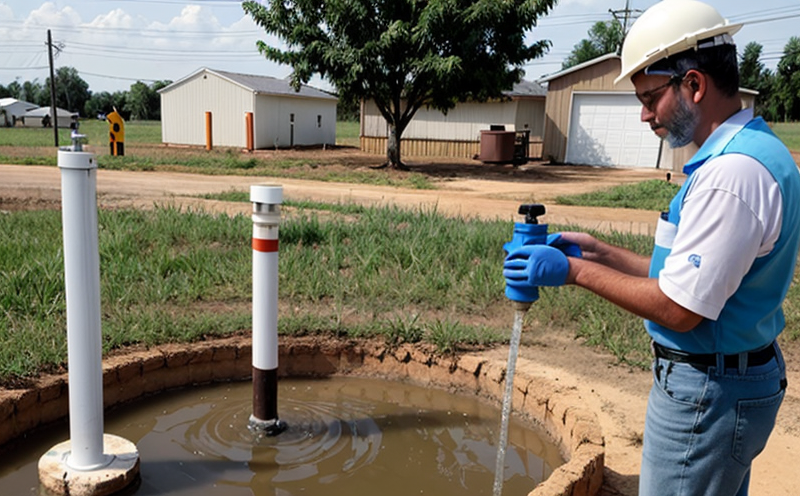ISO 5667-18 Sample Preservation for Groundwater Testing
The ISO 5667-18 standard is a cornerstone in the field of groundwater quality testing, providing methodologies and guidelines for preserving samples to ensure accurate and reliable analysis. This service ensures that water samples are properly maintained from the point of collection until they reach the laboratory for testing.
Preservation techniques are critical because groundwater can contain various contaminants which may change over time if not handled correctly. Proper sample handling helps maintain the integrity of the collected data, ensuring compliance with regulatory standards and providing reliable results for decision-making processes in water quality management.
The process involves several steps that must be followed meticulously to avoid any alteration in the chemical or physical properties of the samples. These include immediate cooling after collection, correct aseptic transfer into preservation containers, addition of appropriate fixatives, and minimizing exposure to light. Understanding these nuances is crucial for professionals involved in water quality management.
Given that groundwater can vary significantly depending on its location and depth, it's important to note how different types of contaminants might behave under various conditions. For instance, metals like arsenic or lead may undergo redox reactions leading to changes in their concentration or form within the sample if not preserved correctly. Similarly, organic compounds could degrade over time affecting test results.
This service is particularly valuable for organizations responsible for monitoring groundwater quality as part of environmental regulations or internal quality control programs. By adhering strictly to ISO 5667-18 standards during sample collection and preservation, these entities can ensure that their data remains accurate and reliable throughout the analytical process.
Accurate ground water testing is essential not only for compliance but also for protecting public health and ensuring sustainable use of natural resources. The ISO standard ensures consistent practices across different laboratories worldwide, thereby enhancing confidence in reported results.
Why It Matters
The significance of proper sample preservation cannot be overstated when dealing with groundwater quality testing. Properly preserved samples are key to obtaining accurate and reliable test results which form the basis for informed decisions regarding water management and treatment.
Groundwater, being a finite resource that can take years to replenish, requires close monitoring to ensure its safety and sustainability. Any discrepancies in measurement could lead to over-treatment or insufficient protection measures, both of which have far-reaching implications. Therefore, ensuring sample integrity is paramount.
Compliance with ISO 5667-18 ensures that all involved parties follow consistent procedures, reducing variability in results across different locations and laboratories. This standardization fosters trust among stakeholders and contributes to more effective resource management.
Benefits
- Achieves accurate and reliable test results by maintaining sample integrity from collection to analysis.
- Ensures compliance with international standards, enhancing credibility of the testing process.
- Promotes consistency in methodology across various laboratories, leading to more robust data sets.
- Supports informed decision-making for water quality management and treatment processes.
- Reduces variability in results which can result from improper sample handling.
- Enhances overall confidence in the reported test findings among stakeholders.
International Acceptance and Recognition
The ISO 5667-18 standard is widely recognized and accepted globally, making it a preferred choice for many laboratories around the world. Its broad acceptance ensures that results obtained using this method are comparable across different regions.
This international recognition underscores the importance of adhering to standardized practices in groundwater testing. By following these guidelines, organizations can ensure that their findings are credible not just locally but also internationally. This is especially important for multinational companies or those operating in multiple countries as it allows them to maintain consistent quality standards regardless of location.
The widespread adoption of ISO 5667-18 also facilitates better communication between various stakeholders involved in groundwater management, including government bodies, research institutions, and private enterprises. It serves as a common language that simplifies collaboration and exchange of information.





